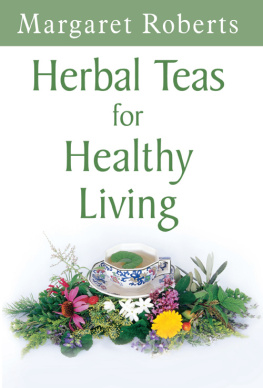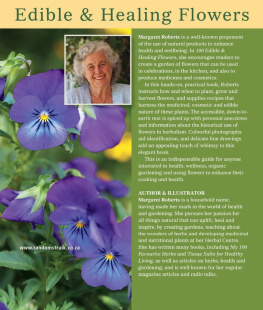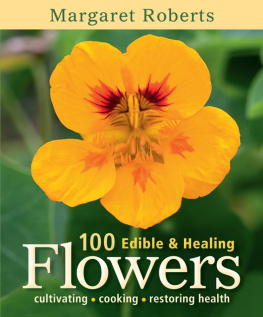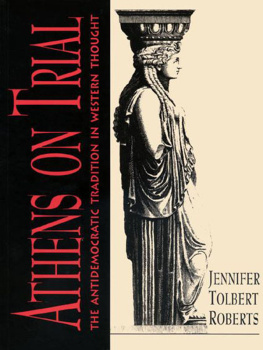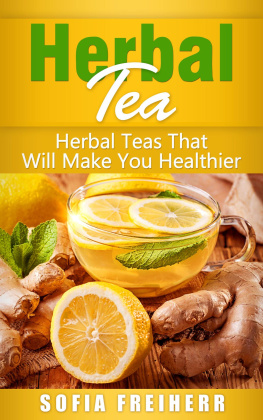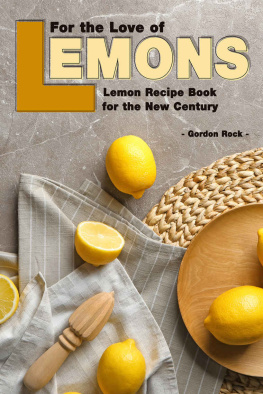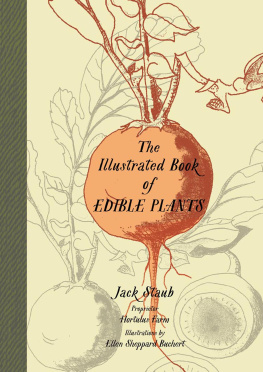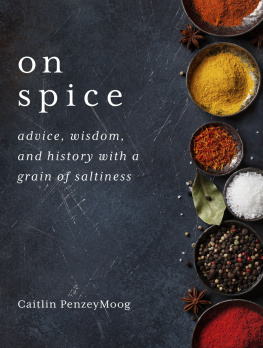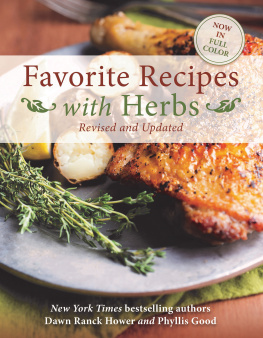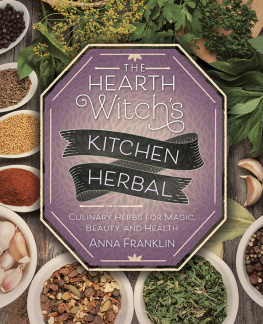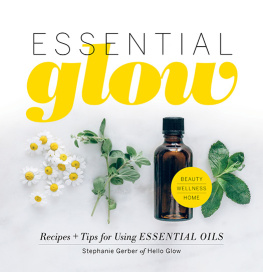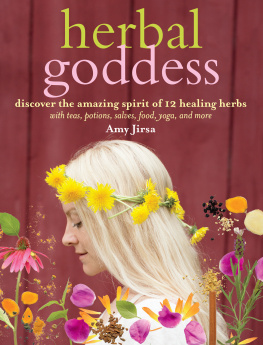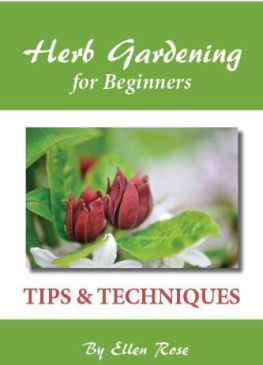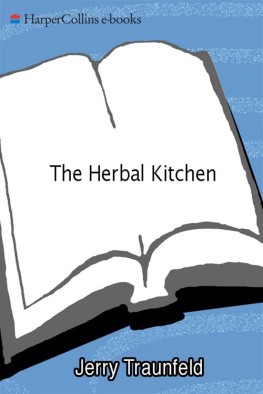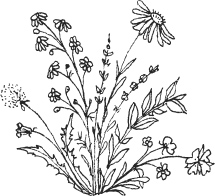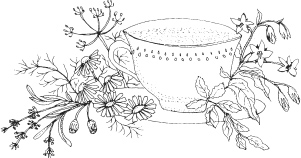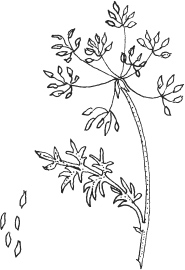Herbal Teas for Healthy Living
Margaret Roberts
Published in 2008 by Struik Nature
(an imprint of Random House Struik (Pty) Ltd)
80 McKenzie Street, Cape Town, 8001 South Africa
PO Box 1144, Cape Town, 8000 South Africa
www.randomstruik.co.za
First published by Spearhead (an imprint of New Africa Books (Pty) Ltd) in 2005
First published by Struik Nature in 2008
Copyright in published edition, 2011: Random House Struik (Pty) Ltd)
Copyright in text, 2005, 2008: Margaret Roberts
Editor: Kathleen Sutton
Project manager: Margaret Matthews
Proofreader: Brenda Barrow
Cover photographs: Phyllis Green
Cover design: Peter Stuckey
Illustrations: Margaret Roberts
Layout and design: Peter Stuckey
Origination: Graphco Processing
All rights reserved. No part of this publication may be reproduced, stored in a retrieval system, or transmitted, in any form or by any means, electronic, mechanical, photocopying, recording or otherwise, without the prior written permission of the copyright owners.
ISBN 978 1 77007 529 0 (Print)
ISBN 978 1 43170 070 7 (ePub)
ISBN 978 1 43170 071 4 (PDF)
Warning
Never use any plant as a tea unless you are one hundred per cent sure of its identification. Many plants are poisonous; in some cases certain parts of a plant may be edible, while other parts may be poisonous. When in doubt, leave out. The author and publishers take no responsibility for any poisoning, illness or discomfort that may result from information contained in this book or due to the incorrect identification of a plant. You are strongly advised to consult a medical practitioner before treating yourself or your family with home remedies.
Contents
Introduction
I wrote the first Herbal Tea book at the end of 1999 at the request of the publishers for a quick-reference little book. This proved to be so popular with so many requests from not only the students who attend my classes at the Herbal Centre, but also from the ever-increasing number of herb lovers. So here it is again with added extras and new herbs included. I have also included a special recipe for each herb that you can try for a different and exciting taste experience.
There isnt space to go into the growing of these precious plants, but my big and comprehensive book, The Essential Margaret Roberts My 100 Favourite Herbs, also published by Spearhead, covers any other queries you may have.
Through the years I have found certain herbs to be absolutely remarkable in their effective, quick, and often astonishing relief of many a common ailment. Making an infusion of the fresh, organically grown plant, and sipping it quietly and slowly, often does more to ease the condition than a lot of serious medication, and I have proved this over and over again but you still need to consult your doctor before starting a home treatment.
Children respond particularly well to herbal teas, as do animals. Often one can include the teas in a favourite fruit juice, or, in the case of animals, add it to their drinking water or mix it into their food. Generally people wrinkle their noses at the thought of a herbal tea, but if it is well made and sweetened, if liked, with a little honey, it is not only delicious but so quick to bring relief that one can become quite fanatical about the wonders of herbal teas! I certainly am, and very rarely drink any other form of tea.
Through my many years of experimenting, I have come to a number of comforting conclusions about herbal teas, which I share with you in this little book.
Margaret Roberts
The Herbal Centre
De Wildt
North West Province
South Africa
To make a herbal tea the best is always fresh
Standard brew when using leaves and flowers: cup fresh leaves and/or flowers. Pour over this 1 cup of boiling water, allow to draw for three to five minutes, then strain. Sip slowly.
Standard brew when using bark and seeds: 12 teaspoons seed approximately, e.g. aniseed. 1 tablespoon bark, e.g. cinnamon. Pour over this 1 cup of boiling water, allow to draw for five minutes, then strain.
Doses for children: cup or even cup, and for a baby 2 teaspoons at a time. Melissa, chamomile and fennel are invaluable childrens herbs.
Doses for animals: Add 1 cup of strained herbal tea to 2 cups of water in their water bowls or mix 1 cup of herb tea into their food.
Important notes
NOTE: Always be sure before starting a home treatment that you consult your doctor these herbal teas are in no way meant to replace the doctor, or any medication you are on.
It is always safest to use one individual herb at a time, as mixing the herbs often dissipates their efficacy. However, although it is advisable to drink only one cup of a specific herbal tea a day, you can drink several cups of different herbal teas throughout the day.
During an acute illness, for example flu or a cold, you can take a specific herb three to four times during the day to ease the condition, but a general rule is to take only one of a kind daily, then after ten days give it a break of three or four days, then continue, stopping every ten days for three to four days, before continuing.
Herbs are far more powerful than we realise and can accumulate within the body. So it is best to take a variety and also to take them in moderation.
Very importantly, all herbs must be organically grown with no chemical fertilisers or sprays whatsoever, as the herb is immediately absorbed by the body and it needs to be 100 per cent pure. Also, be sure that no irradiated spices or seeds are used, and never dry the herbs in a microwave. It is best to use herbs fresh, but in case you have to dry them do so by hanging them up, or spread them on newspaper in the shade and turn daily. Store dried herbs in a screw-top glass bottle and dont keep them for longer than three months. After that theyre not even palatable.
Above all, enjoy this remarkable way of absorbing the health-giving properties of natures little miracles. Herbs make all the difference to our health and state of mind; they lift our spirits and give us never-ending interest. Relish every sip!
The benefits of honey
Both lemon and honey can be added to most of the herbal teas in this little book. Both are hugely important in the building of health, and honey is the best natural sweetener ever known to humankind. Honey contains a mass of mineral salts, amino acids, vitamins and natural, easily digested sugars. Honey is a sleep inducer and a natural disinfectant and painkiller. It is surprisingly often used as a country remedy spread onto open sores, scratches and grazes many a horse has had a honey wound dressing that the vet has recommended. It has antibacterial and antiviral properties, and it helps to ease diarrhoea, asthma and sore throats. (The old-fashioned sage tea with honey and lemon is still one of the most popular sore-throat treatments today.) Honey is a wonderful unwinding, calming, soothing and relaxing addition to the herbal teas!

